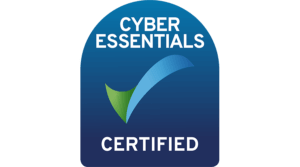The key purpose of undertaking client due diligence is to build an understanding of your clients background and circumstances, assess their risk profile and evaluate how this could affect your firm. In addition to the checks we have already discussed, you must also check and verify your clients financial circumstances 🔍
Source of Funds relates to the money that is directly being used to finance a specific transaction/s in which you are to be involved. In order to verify these funds, you must check where they have come from, how they have been accumulated and ensure that they are not the proceeds of crime. There are a number of ways in which you can do this, such as acquiring payslips, wills, audited financial accounts etc. Source of Wealth covers a much broader spectrum, and relates to the origin of the clients ‘entire body of wealth’. This can relate to all activities (business, economic and/or commercial) that have contributed to the clients net worth. In a low or medium risk transaction, it will usually be sufficient to ask the client where they have accrued the wealth from and record the same, and undertake public searches to verify this information 💰
In transactions that you have identified to be high risk, R33 states that you must apply Enhanced Due Diligence (EDD) and ongoing monitoring in addition to the measures provided for in R28. This must also be carried out where the client (or their family or close acquaintance) is a Politically Exposed Person, the client or parties to the transactions are established in a high-risk third country, the client has provided stolen or false identification but you are proceeding, or the transaction is unusually large, complex, has an unusual pattern or appears to have no economic or legal purpose.
Undertaking appropriate EDD can include;
- 💸 Taking additional steps to understand your clients background and financial situation, and any other parties to the transaction
- 💸 Increasing your monitoring of the business relationship and transactions
- 💸 Additional independent sources to verify information that is provided
- 💸 Taking additional steps to satisfy that the transaction reflects the purpose and nature of the relationship
EDD must be carried out when there are PEP’s involved in the transaction, but what actually is a PEP and why are they so high risk? Put simply, a Politically Exposed Person is someone who through their prominent public position or high profile political role is more susceptible to becoming involved in corruption or bribery. Examples of PEP’s include Heads of State, politicians, and senior government executives; According to R35(12) a PEP may also be a family member or close associate of the PEP in question. It is important to note that only genuinely prominent and influential officials will be treated as a PEP in the UK and require full EDD 👩⚖️
For assistance with implementing stringent due diligence policies, contact Intuitive Legal today 📧


